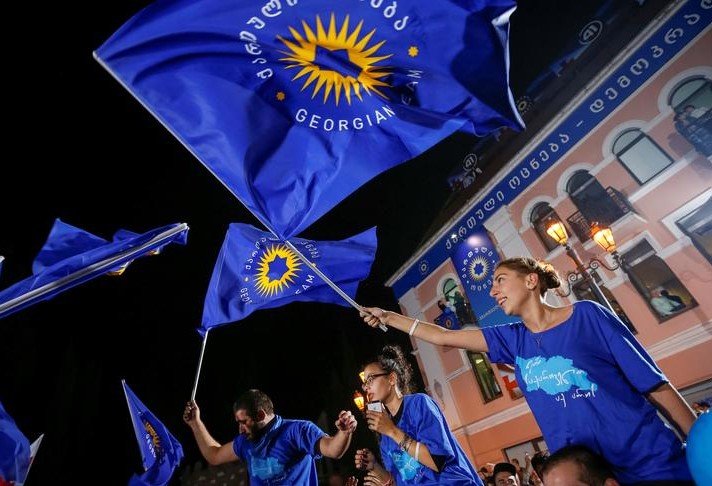In the heart of the Caucasus, Georgia finds itself at a pivotal juncture, grappling with its identity and future direction. A coalition of non-governmental organizations (NGOs) has sounded the alarm, accusing the ruling “Georgian Dream” party of attempting to steer the nation away from its pro-Western trajectory. This controversy strikes at the core of Georgia’s post-Soviet aspirations and its constitutional commitment to Euro-Atlantic integration.
A Divisive Political Landscape
The political climate in Georgia is charged with tension as accusations surface against the “Georgian Dream” party. NGOs allege that recent anti-European statements by government officials contradict the will of the Georgian people and the nation’s constitution. The controversy centers around the party’s perceived shift towards Russian-influenced policies, including attempts to pass legislation mirroring Russian laws.

This shift has sparked concern among civil society groups, who view it as a betrayal of Georgia’s constitutional mandate to pursue membership in the European Union and NATO. The NGOs’ outcry reflects a broader fear that the country’s western course, a cornerstone of its post-Soviet identity, is under threat.
The Voice of Civil Society
The response from Georgia’s vibrant civil sector has been swift and decisive. Thirty NGOs have banded together, issuing statements that challenge the government’s stance and call for adherence to the nation’s constitutional obligations. These organizations span a diverse spectrum, from human rights watchdogs to economic policy think tanks, all united in their concern for Georgia’s future.
Their collective voice serves as a reminder of the unwavering will of the Georgian people to align with Western institutions. The NGOs’ activism underscores the importance of civil society in shaping national discourse and holding the government accountable to its constitutional promises.
The International Ramifications
Georgia’s internal debate over its geopolitical orientation has significant international implications. The country’s strategic location and its relationships with neighboring powers make its political decisions a matter of global interest. The West, particularly the European Union and NATO, closely monitors Georgia’s commitment to Euro-Atlantic integration, which is seen as a barometer of the region’s stability.
The NGOs’ warnings about a potential shift in Georgia’s foreign policy resonate beyond its borders, highlighting the delicate balance between national sovereignty and international alliances. As Georgia navigates these complex waters, the world watches, waiting to see which course the country will chart.
